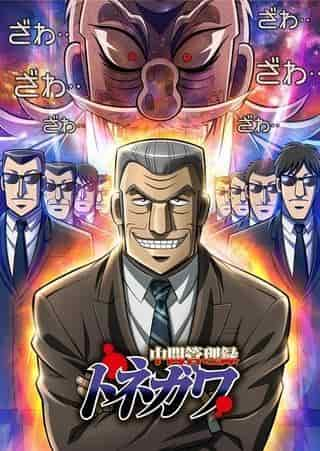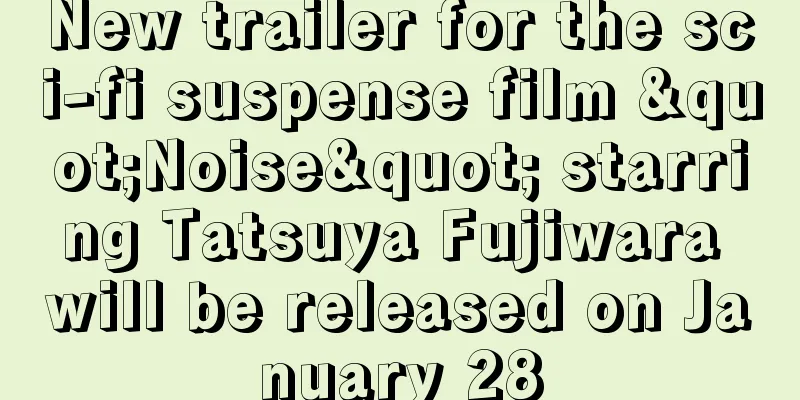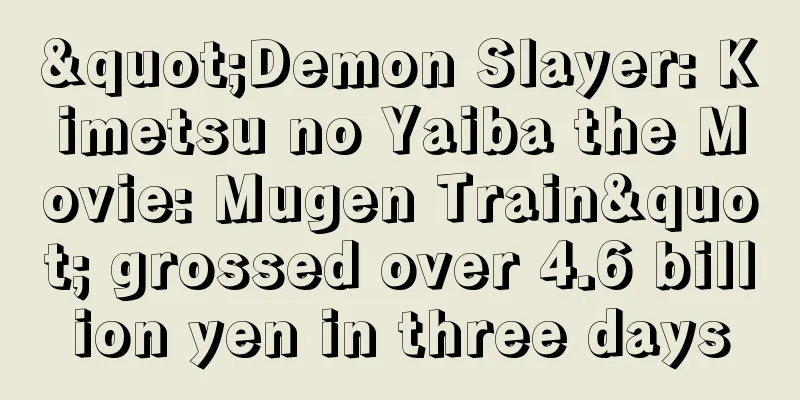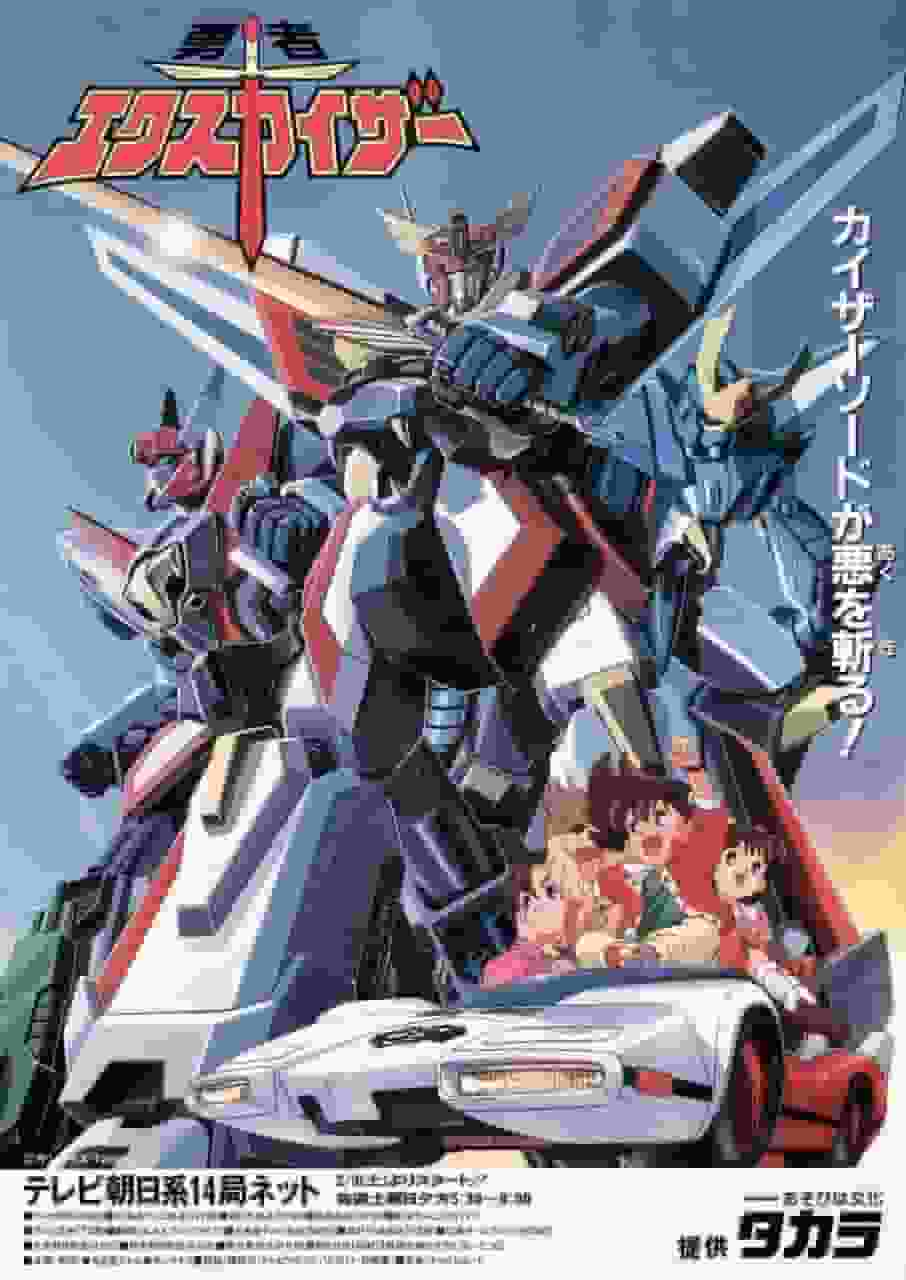The appeal and evaluation of "Middle Management Chronicle Tonogawa": The height of black humor

"Tonagawa: The Middle Management Chronicles": A comical account of the struggles and conflicts of middle managementOverview"Tonegawa: The Middle Management Chronicle" is a TV anime series that aired on Nippon TV from July 4 to December 26, 2018 as a spin-off of Fukumoto Nobuyuki's popular manga "Gambling Apocalypse Kaiji." The original manga was written by Hagiwara Tenka, Hashimoto Tomohiro, and Miyoshi Tomoki, and the animation was produced by Madhouse. The series has 24 episodes, each 30 minutes long, and depicts the struggles of Tonegawa Yukio, an executive of the Teiai Group. ■ StoryExecutive Tonegawa Yukio is ordered by Teiai Group Chairman Hyoudou Kazutaka to plan a "death game" for debtors. Tonegawa immediately convenes the black suits to hold a planning meeting, but dark clouds gradually begin to gather in the conference room...!? Tonegawa Yukio, who is torn between the chairman and the black suits, is a record of his soul's middle management!!! ■Explanation"Tonagawa: The Middle Management Chronicle" is a spin-off work starring Yukio Tonegawa, one of the characters from Nobuyuki Fukumoto's "Kaiji: The Ultimate Gambler." The story is a humorous portrayal of the struggles and conflicts of Tonegawa, a middle manager who is the one who has to be the closest to the tyrant Chairman Hyoudou, even though he is an executive of the Teiai Group and leads a large number of black-suited men. The anime adaptation has gained even more fans while retaining the fun of the original manga. ■Cast
■ Main staff
■ Main Characters
■Subtitle
■ Related works
■ Theme songs and music
■Detailed review"Middle Management Blues Tonegawa" has gained even more fans by being made into an anime, while retaining the fun of the original manga. In particular, the character of Tonegawa Yukio is very appealing, and his suffering and conflict are portrayed in a comical way, which has earned him acclaim. The anime faithfully reproduces the episodes of the original work, while adding even more depth through its visual expression and the performances of the voice actors. The acting ability of Morikawa Toshiyuki, who plays Tonegawa Yukio, as a voice actor makes the character of Tonegawa feel more real. In particular, Tonegawa's anguish and conflict are conveyed realistically in the scenes where he interacts with Chairman Hyodo and communicates with his subordinates. The other cast members also perform their respective characters well, making for an overall high-quality cast of voice actors. Madhouse, the animation studio, has paid particular attention to character design and background art, faithfully recreating the worldview of the original work. In particular, the depiction of Tonegawa's office and conference rooms is full of realistic and fine details, making it a visual treat. The color design and cinematography are also highly skilled, making the film easy to watch overall. In terms of music, the opening and ending songs also liven up the atmosphere of the work. In particular, the opening song "Tonagawa-kun Running Dashingly" is a song that symbolizes the character of Tonegawa and has the power to capture the hearts of viewers. In addition, the ending songs "Oki Letter" and "Kyogen-Kagerou" are also impressive with lyrics and melodies that delve deeply into the theme of the work. ■ Recommendation points"Middle Management Blues Tonogawa" is a work that can be recommended not only to fans of the original manga, but also to anime fans. In particular, the following points are recommended.
"Middle Management Blues Tonegawa" has gained even more fans by being made into an anime, while retaining the fun of the original manga. In particular, the character of Tonegawa Yukio is very appealing, and his suffering and conflict are portrayed in a comical way, which has earned him acclaim. The anime faithfully reproduces the episodes of the original work, while adding even more depth through its visual expression and the performances of the voice actors. The acting ability of Morikawa Toshiyuki, who plays Tonegawa Yukio, as a voice actor makes the character of Tonegawa feel more real. In particular, Tonegawa's anguish and conflict are conveyed realistically in the scenes where he interacts with Chairman Hyodo and communicates with his subordinates. The other cast members also perform their respective characters well, making for an overall high-quality cast of voice actors. Madhouse, the animation studio, has paid particular attention to character design and background art, faithfully recreating the worldview of the original work. In particular, the depiction of Tonegawa's office and conference rooms is full of realistic and fine details, making it a visual treat. The color design and cinematography are also highly skilled, making the film easy to watch overall. In terms of music, the opening and ending songs also liven up the atmosphere of the work. In particular, the opening song "Tonagawa-kun Running Dashingly" is a song that symbolizes the character of Tonegawa and has the power to capture the hearts of viewers. In addition, the ending songs "Oki Letter" and "Kyogen-Kagerou" are also impressive with lyrics and melodies that delve deeply into the theme of the work. Related information"Middle Management Blues Tonegawa" has gained even more fans by being made into an anime, while retaining the fun of the original manga. In particular, the character of Tonegawa Yukio is very appealing, and his suffering and conflict are portrayed in a comical way, which has earned him acclaim. The anime faithfully reproduces the episodes of the original work, while adding even more depth through its visual expression and the performances of the voice actors. The acting ability of Morikawa Toshiyuki, who plays Tonegawa Yukio, as a voice actor makes the character of Tonegawa feel more real. In particular, Tonegawa's anguish and conflict are conveyed realistically in the scenes where he interacts with Chairman Hyodo and communicates with his subordinates. The other cast members also perform their respective characters well, making for an overall high-quality cast of voice actors. Madhouse, the animation studio, has paid particular attention to character design and background art, faithfully recreating the worldview of the original work. In particular, the depiction of Tonegawa's office and conference rooms is full of realistic and fine details, making it a visual treat. The color design and cinematography are also highly skilled, making the film easy to watch overall. In terms of music, the opening and ending songs also liven up the atmosphere of the work. In particular, the opening song "Tonagawa-kun Running Dashingly" is a song that symbolizes the character of Tonegawa and has the power to capture the hearts of viewers. In addition, the ending songs "Oki Letter" and "Kyogen-Kagerou" are also impressive with lyrics and melodies that delve deeply into the theme of the work. "Middle Management Blues Tonegawa" has gained even more fans by being made into an anime, while retaining the fun of the original manga. In particular, the character of Tonegawa Yukio is very appealing, and his suffering and conflict are portrayed in a comical way, which has earned him acclaim. The anime faithfully reproduces the episodes of the original work, while adding even more depth through its visual expression and the performances of the voice actors. The acting ability of Morikawa Toshiyuki, who plays Tonegawa Yukio, as a voice actor makes the character of Tonegawa feel more real. In particular, Tonegawa's anguish and conflict are conveyed realistically in the scenes where he interacts with Chairman Hyodo and communicates with his subordinates. The other cast members also perform their respective characters well, making for an overall high-quality cast of voice actors. Madhouse, the animation studio, has paid particular attention to character design and background art, faithfully recreating the worldview of the original work. In particular, the depiction of Tonegawa's office and conference rooms is full of realistic and fine details, making it a visual treat. The color design and cinematography are also highly skilled, making the film easy to watch overall. In terms of music, the opening and ending songs also liven up the atmosphere of the work. In particular, the opening song "Tonagawa-kun Running Dashingly" is a song that symbolizes the character of Tonegawa and has the power to capture the hearts of viewers. In addition, the ending songs "Oki Letter" and "Kyogen-Kagerou" are also impressive with lyrics and melodies that delve deeply into the theme of the work. |
<<: The Misfortunes of Zombie Girls: A fascinating story and deep character development
>>: The appeal and reviews of Yakiniku restaurant Sengoku: In search of the ultimate meat experience
Recommend
Unique flavor! Japan's first color theatrical animation feature film "The Legend of the White Snake" Blu-ray remake announced
The Blu-ray remake of "The Legend of the Whi...
A thorough review of the original animation for "100 Days of Roses: Paws Without Honor"!
"100 Days of Roses: Paws Without Honor"...
Oda Eiichiro's latest interview: He doesn't believe genius is the result of hard work
Oda, who usually dislikes showing up in social oc...
The appeal and evaluation of the 9th episode of "K-ON!!"
"K-ON!! 9 Extra Edition" - A special ep...
Sigourney Weaver and Bill Murray to Return for Ghostbusters Movie
Sigourney Weaver has confirmed that she will repr...
The new Ghibli film "Aya and the Witch" will be released in Taiwan on November 12
Today (November 1), Ghibli's first full-lengt...
"Ash Is Purest White" criticized for negative energy Jia Zhangke: Negative energy is when you can't stand the truth
The film Ash Is Purest White, directed by Jia Zha...
The first trailer of the movie "The Melancholy of Haruka Utsushima 2": A mysterious force appears?
According to the new news released by the officia...
The Last of Us Episode 3 is highly restored compared to the game
The third episode of the first season of The Last...
The first spin-off of John Wick: Chapter 11, InterContinental, premieres in September
Today (April 13), streaming media Peacock release...
Depp and Amber's lawsuit movie trailer will be released on September 30
Sina Movies reported today that Tubi has launched...
The Tale of Genius TV: The Adventures of the Spaceship Sophia - A moving journey that questions the preciousness of life
"Tensai Terebikun Gaiden: The Adventures of ...
Director Gunn introduces the latest progress of the new "Superman" production. He personally does not expect any reshoots
The new "Superman" (also called "S...
Evaluation and impressions of the first episode of the short anime "After School Boy Hanako-kun"
The appeal and detailed review of "After Sch...
The appeal and reputation of Hanitaro: A must-read review for anime fans
The World of Hanitaro: A 5-minute miracle filled ...









